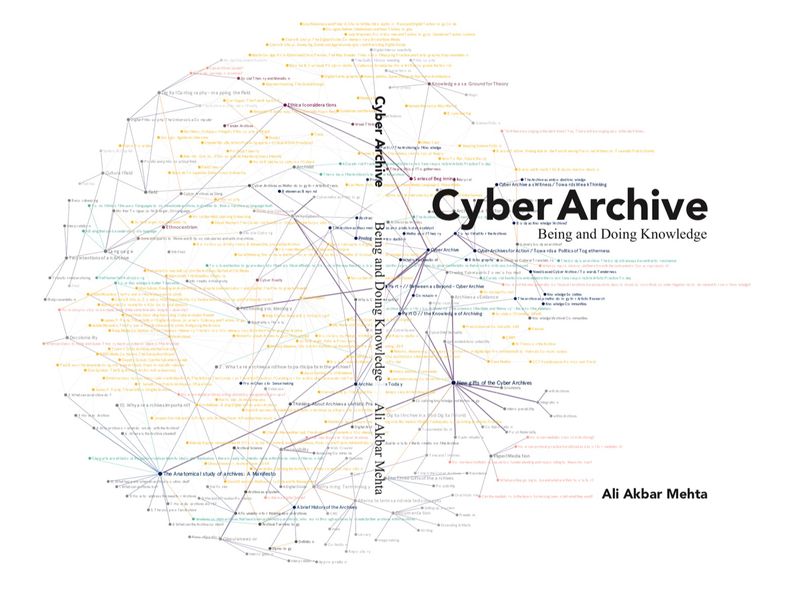
Cyber Archive
- Cyber Archive
- Cyber Archive: Being and Doing Knowledge
- Cyber Archive: Questions
- Cyborg Archives: Can Archives Speak?
- Archiving Knowledge, sculptures
- Cyborg Archives: GarbageInGarbageOut, TIFA Working Studios, Pune
- Cyber Archive: Archiving as a sustainable counter-hegemonic practice
- Archiving: Histories in the Present
- Congratulations, the Space is invaded: Now What?
- Cyber Archives
- To Not Wait for the Archive: Home and Labour mired in the complications of Invisibalisation
- A Cyber Archive of Questions
- Glitchverse
- External Evaluation of Ali Akbar Mehta/ Master’s Thesis – Cyber Archive: Being and Doing Knowledge
- Bibliography and other Reading
Cyber Archive is a curatorial framework inviting the reader to consider the Archive, as a narrative, a repository, a state-tool, a fact, a fiction, both as a site and trope for artistic inquiry and art production; to define our protagonist: the User (of the Cyber Archives) as an artist/curator/archivist, a combination of a historian, researcher, performer, participant, interventionist, collaborator, urban denizen, and spy.
The thesis is presented as a cyberpsychogeographical archive situated in and as a cluster of cyber relations, here.
Thus, it performs its own validation by actualising the possibilities of non-linear and cyclic time that are the relevant ‘features’ of a metadata-driven, hyperconnected archive that resides in cyberspace and uses a digital interface. It provides a framework for asking a series of questions. If an archive may have several meanings, then this archive is also an archive of questions one may have, or should have, about archives. Questions sustain a critical perspective of both praxes and research, and so if an archive has no end, this archive may be an ongoing process of archiving questions till the very end (of archives).
Cyber Archive: Being and Doing Knowledge
MA thesis, Aalto University, 2018
The thesis is framed through the question: How can ‘archives transformed by the use of digital technologies’ be studied within the framework of ‘Cybernetic relations’? What are the parameters of this study – its historic and technical vocabulary, socio-political roots and ethical considerations that shape these relations – and what are the implications of this practice?
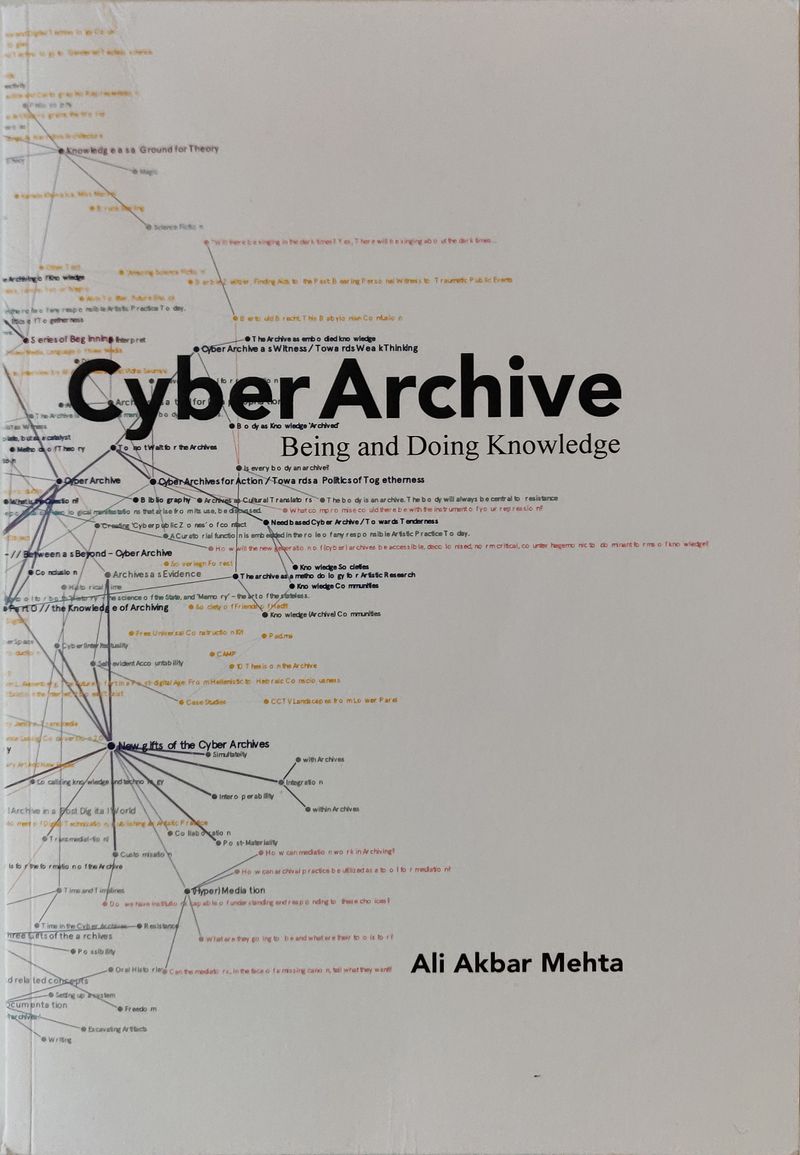
Although State and institutional archives are historically considered institutions of preserving knowledge, counter-archives as artistic practice have increasingly challenged their method and value. Archives created/generated/imagined within artistic research and practice still maintain a close proximity with the archival canon, through similarities in structure, terminology, and intent, but today archives are being transformed through digital technology. With a turn towards an increasingly participative and active engagement with archives, we can longer claim to have insufficient cultural data – we are overwhelmed with data. Simultaneously the rift between ‘the people’ and the ‘other’ is increasing, reflecting in data that is fragmented, disjointed, and out of sync – the tools that process our cultural data are getting bottlenecked, or perhaps a claim can be made that we have not yet learnt to harness the gifts of our tools. Our tools need to upgrade, and us with them – we need to make another beginning. ‘Cyber Archive’ studies archives within the framework of Cybernetic ‘Relations’ – in the context of hyper-connected data-driven networked societies; as cyborgs (networked individuals) in cyberspace (networked space); as cybernetic containers of accessible, meta-tagged, cross-referenced, non-linear, transmedia data – as observable systems that span several existing social and professional platforms to create a self-sustainable data multiverse. Through Cyber Archive as a system, we may be able to harvest meaningful data that represents to us as artists, a location of culture. ‘Cyber Archive’ is explained simultaneously as a technical term (concerned with archival technology); as well as a political term (concerned with the socio-political ethics of archiving). The process of defining this term is instrumental in arriving at a method and purpose for why must Cyber Archives be considered a meaningful praxis, beyond traditional methods of both archival canon, as well as archives within artistic practice. Our pedagogy, scholarship, and disciplinary identity are inextricably bound up in the Cyber archives we use today and design for the future. It offers practical tools, ‘gifts’ and methods to navigate this network, and establish conclusive models towards methodologies for Cyber Archives as artistic practice – creating Knowledge Communities, Cyber public zones of contact and Para-Institutions.
Keywords:
- cybernetics
- archive
- knowledge
- network
- theory
- artistic practice
- research
- language
Cyber Archive: Questions
An Archive of questions
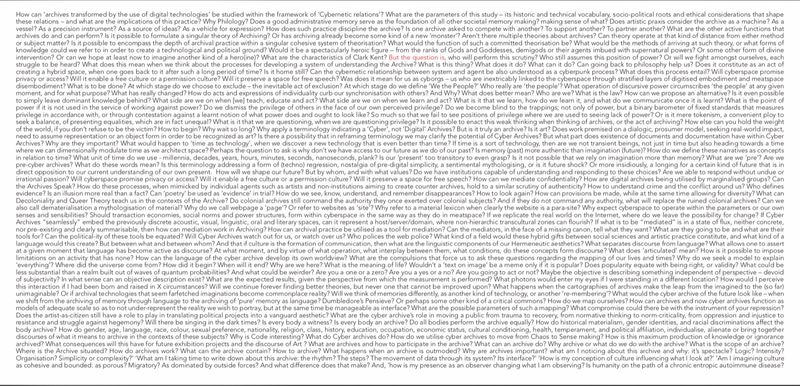
How can ‘archives transformed by the use of digital technologies’ be studied within the framework of ‘Cybernetic relations’? What are the parameters of this study – its historic and technical vocabulary, socio-political roots and ethical considerations that shape these relations – and what are the implications of this practice? Why Philology? Does a good administrative memory serve as the foundation of all other societal memory making? making sense of what? Does artistic praxis consider the archive as a machine? As a vessel? As a precision instrument? As a source of ideas? As a vehicle for expression? How does such practice discipline the archive? Is one archive asked to compete with another? To support another? To partner another? What are the other active functions that archives do and can perform? Is it possible to formulate a singular theory of Archiving? Or has archiving already become some kind of a new ‘monster’? Aren’t there multiple theories about archives? Can theory operate at that kind of distance from either method or subject matter? Is it possible to encompass the depth of archival practice within a singular cohesive system of theorisation? What would the function of such a committed theorisation be? What would be the methods of arriving at such theory, or what forms of knowledge could we refer to in order to create a technological and political ground? Would it be a spectacularly heroic figure – from the ranks of Gods and Goddesses, demigods or their agents imbued with supernatural powers? Or some other form of divine intervention? Or can we hope at least now to imagine another kind of a hero(ine)? What are the characteristics of Clark Kent? But the question is, who will perform this scrutiny? Who still assumes this position of power? Or will we fight amongst ourselves, each struggle to be heard? What does this mean when we think about the processes for developing a system of understanding the Archive? What is this thing? What does it do? What can it do? Can going back to philosophy help us? Does it constitute as an act of creating a hybrid space, when one goes back to it after such a long period of time? Is it home still? Can the cybernetic relationship between system and agent be also understood as a cyberpunk process? What does this process entail? Will cyberspace promise privacy or access? Will it enable a free culture or a permission culture? Will it preserve a space for free speech? Was does it mean for us as cyborgs – us who are inextricably linked to the cyberspace through stratified layers of digitised embodiment and meatspace disembodiment? What is to be done? At which stage do we choose to exclude – the inevitable act of exclusion? At which stage do we define ‘We the People?’ Who really are ‘the people’? What operation of discursive power circumscribes ‘the people’ at any given moment, and for what purpose? What has really changed? How do acts and expressions of individuality curb our synchronisation with others? And Why? What does better mean? Who are we? What is the law? How can we propose an alternative? Is it even possible to simply leave dominant knowledge behind? What side are we on when [we] teach, educate and act? What side are we on when we learn and act? What is it that we learn, how do we learn it, and what do we communicate once it is learnt? What is the point of power if it is not used in the service of working against power? Do we dismiss the privilege of others in the face of our own perceived privilege? Do we become blind to the trappings; not only of power, but a binary barometer of fixed standards that measures privilege in accordance with, or through contestation against a learnt notion of what power does and ought to look like? So much so that we fail to see positions of privilege where we are used to seeing lack of power? Or is it mere tokenism, a convenient ploy to seek a balance, of presenting equalities, which are in fact unequal? What is it that we are questioning, when we are questioning privilege? Is it possible to enact this weak thinking when thinking of archives, or the act of archiving? How else can you hold the weight of the world, if you don’t refuse to be the victim? How to begin? Why wait so long? Why apply a terminology indicating a ‘Cyber’, not ‘Digital’ Archives? But is it truly an archive? Is it art? Does work premised on a dialogic, prosumer model, seeking real-world impact, need to assume representation or an object form in order to be recognized as art? Is there a possibility that in reframing terminology we may clarify the potential of Cyber Archives? But what part does existence of documents and documentation have within Cyber Archives? Why are they important? What would happen to ‘time as technology’, when we discover a new technology that is even better than time? If time is a sort of technology, then are we not transient beings, not just in time but also heading towards a time where we can dimensionally modulate time as we architect space? Perhaps the question to ask is why don’t we have access to our future as we do of our past? Is memory (past) more authentic than imagination (future)? How do we define these narratives as concepts in relation to time? What unit of time do we use - millennia, decades, years, hours, minutes, seconds, nanoseconds, plank? Is our ‘present’ too transitory to even grasp? Is it not possible that we rely on imagination more than memory? What are we ‘pre’? Are we pre-cyber archives? What do these words mean? Is this terminology addressing a form of (techno) regression, nostalgia of pre-digital simplicity, a sentimental mythologising, or is it future shock? Or more insidiously, a longing for a certain kind of future that is in direct opposition to our current understanding of our own present. How will we shape our future? But by whom, and with what values? Do we have institutions capable of understanding and responding to these choices? Are we able to respond without undue or irrational passion? Will cyberspace promise privacy or access? Will it enable a free culture or a permission culture? Will it preserve a space for free speech? How can we mediate confidentiality? How are digital archives being utilised by marginalised groups? Can the Archives Speak? How do these processes, when mimicked by individual agents such as artists and non-institutions aiming to create counter archives, hold to a similar scrutiny of authenticity? How to understand crime and the conflict around us? Who defines evidence? Is an illusion more real than a fact? Can ‘poetry’ be used as ‘evidence’ in trial? How do we see, know, understand, and remember disappearances? How to look again? How can provisions be made, while at the same time allowing for diversity? What can Decoloniality and Queer Theory teach us in the contexts of the Archive? Do colonial archives still command the authority they once exerted over colonial subjects? And if they do not command any authority, what will replace the ruined colonial archives? Can we also call dematerialisation a mythologisation of material? Why do we call webpage a ‘page’? Or refer to websites as ‘site’? Why refer to a material lexicon when clearly the website is a para-site? Why expect cyberspace to operate within the parameters or our own senses and sensibilities? Should transaction economies, social norms and power structures, form within cyberspace in the same way as they do in meatspace? If we replicate the real world on the Internet, where do we leave the possibility for change? If Cyber Archives “seamlessly” embed the previously discrete acoustic, visual, linguistic, oral and literary spaces, can it represent a host/server/domain, where non-hierarchic transcultural zones can flourish? If what is to be “mediated” is in a state of flux, neither concrete, nor pre-existing and clearly summarisable, then how can mediation work in Archiving? How can archival practice be utilised as a tool for mediation? Can the mediators, in the face of a missing canon, tell what they want? What are they going to be and what are their tools for? Can the political-ity of these tools be equated? Will Cyber Archives watch out for us, or watch over us? Who polices the web police? What kind of a field would these hybrid gifts between social sciences and artistic practice constitute, and what kind of a language would this create? But between what and between whom? And that if culture is the formation of communication, then what are the linguistic components of our Hermeneutic aesthetics? What separates discourse from language? What allows one to assert at a given moment that language has become active as discourse? At what moment, and by virtue of what operation, what interplay between them, what conditions, do these concepts form discourse? What does ‘articulated’ mean? How is it possible to impose limitations on an activity that has none? How can the language of the cyber archive develop its own worldview? What are the compulsions that force us to ask these questions regarding the mapping of our lives and times? Why do we seek a model to explain ‘everything’? Where did the universe come from? How did it begin? When will it end? Why are we here? What is the meaning of life? Wouldn’t a ‘text on image’ be a meme only if it is popular? Does popularity equate with being right, or validity? What could be less substantial than a realm built out of waves of quantum probabilities? And what could be weirder? Are you a one or a zero? Are you a yes or a no? Are you going to act or not? Maybe the objective is describing something independent of perspective – devoid of subjectivity? In what sense can an objective description exist? What are the expected results, given the perspective from which the measurement is performed? What photons would enter my eyes if I were standing in a different location? How would I perceive this interaction if I had been born and raised in X circumstances? Will we continue forever finding better theories, but never one that cannot be improved upon? What happens when the cartographies of archives make the leap from the imagined to the (so far) unimaginable? Or if archival technologies that seem farfetched imaginations become commonplace reality? Will we think of memories differently, as another kind of technology, or another ‘re-membering’? What would the cyber archive of the future look like – when we shift from the archiving of memory through language to the archiving of ‘pure’ memory as language? Dumbledore’s Pensieve? Or perhaps some other kind of a critical commons? How do we map ourselves? How can archives and now cyber archives function as models of adequate scale so as to not under-represent the reality we wish to portray, but at the same time be manageable as interface? What are the possible parameters of such a mapping? What compromise could there be with the instrument of your repression? Does the artist-as-citizen still have a role to play in translating political projects into a vanguard aesthetic? What are the cyber archive’s role in moving a public from trauma to recovery, from normative thinking to norm-criticality, from oppression and injustice to resistance and struggle against hegemony? Will there be singing in the dark times? Is every body a witness? Is every body an archive? Do all bodies perform the archive equally? How do historical materialism, gender identities, and racial discriminations affect the body archive? How do gender, age, language, race, colour, sexual preference, nationality, religion, class, history, education, occupation, economic status, cultural conditioning, health, temperament, and political affiliation, individualise, alienate or bring together discourses of what it means to archive in the contexts of these subjects? Why is Code interesting? What do Cyber archives do? How do we utilise cyber archives to move from Chaos to Sense making? How is this maximum production of knowledge or ignorance archived? What consequences will this have for future exhibition projects and the discourse of Art ? What are archives and how to participate in the archive? What can an archive do? Why archive or what do we do with the archive? What is the scope of an archive? Where is the Archive situated? How do archives work? What can the archive contain? How to archive? What happens when an archive is outmoded? Why are archives important? what am I noticing about this archive and why: it’s spectacle? Logic? Intensity? Organisation? Simplicity or complexity?’ ‘What am I taking time to write down about this archive: the rhythm? The steps? The movement of data through its system? Its interface?’ ‘How is my conception of culture influencing what I look at?’ ‘Am I imagining culture as cohesive and bounded: as porous? Migratory? As dominated by outside forces? And what difference does that make? And, ‘how is my presence as an observer changing what I am observing? Is humanity on the path of a chronic entropic autoimmune disease?
*
Ali Akbar Mehta, Cyber Archive: Being and doing Knowledge, 2018
Cyborg Archives: Can Archives Speak?
Performance directed by Ali Akbar Mehta and performed by Ganesh Totekar
Cyborg Archives: Can Archives Speak? is the fifth in a series of five performance and participatory installations, as part of the culmination of my residency at TIFA Working Studios
Can Archives Speak? is performed by Ganesh Totekar, and the performance was conducted at TIFA Working Studios in the exhibition ‘Assembly of Access’, curated by Vidisha Fadescha, 2018.
Archiving Knowledge, sculptures
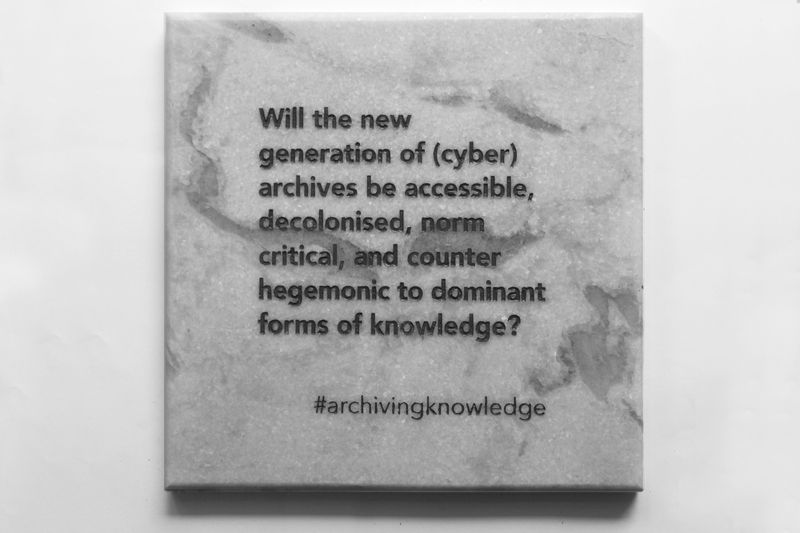
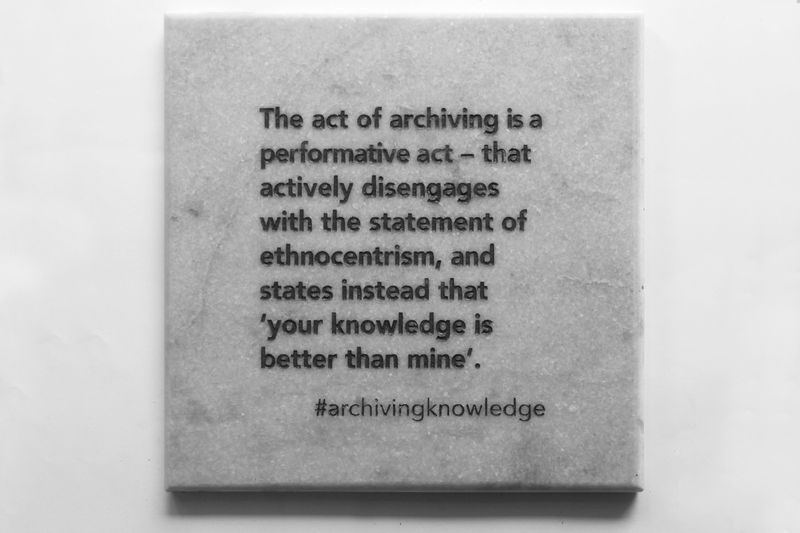
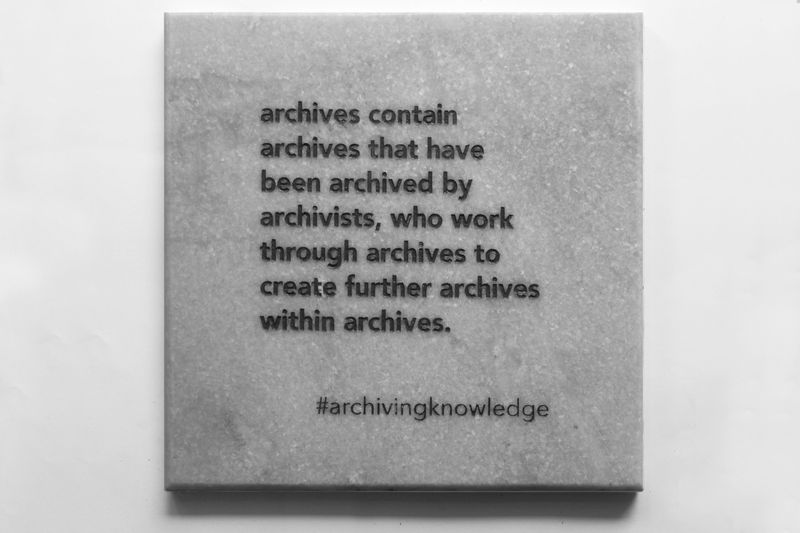
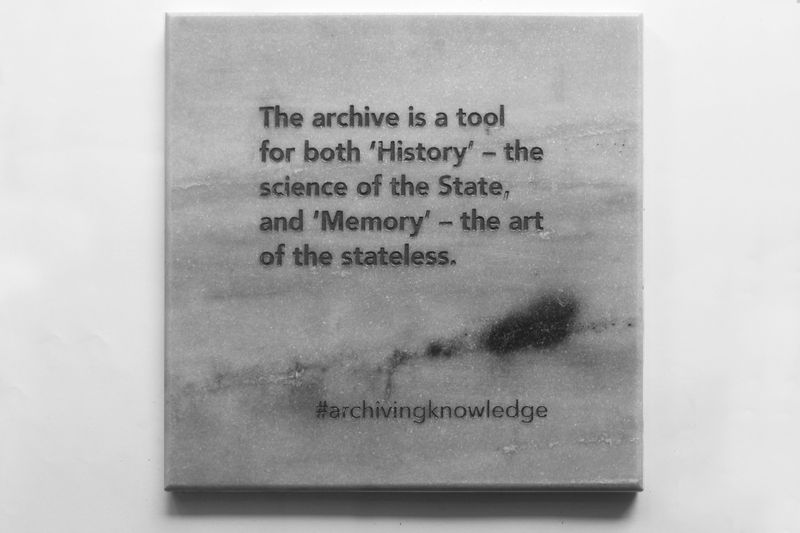
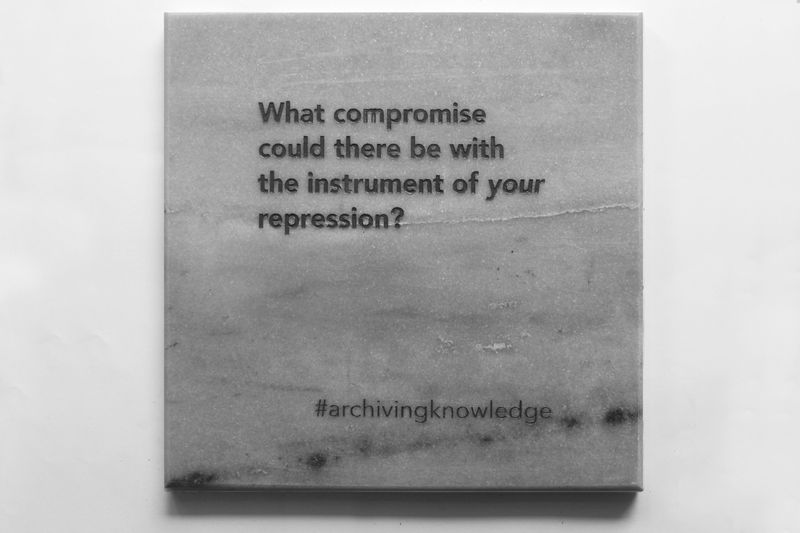
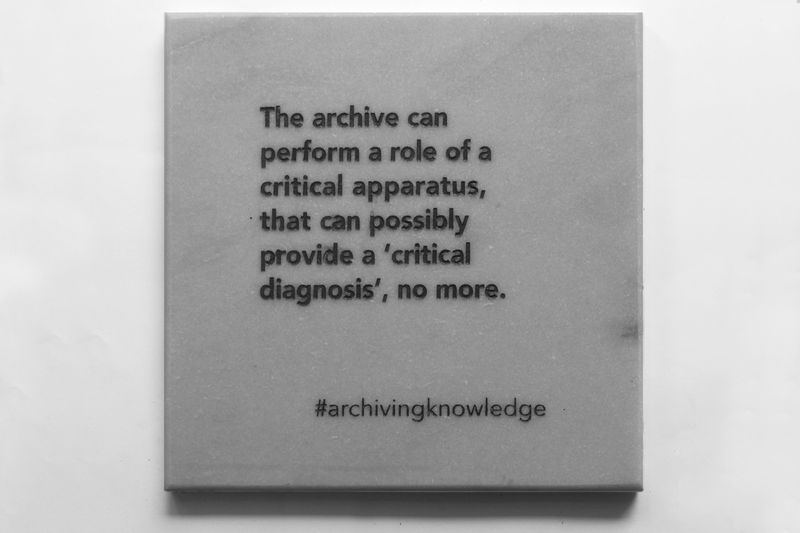
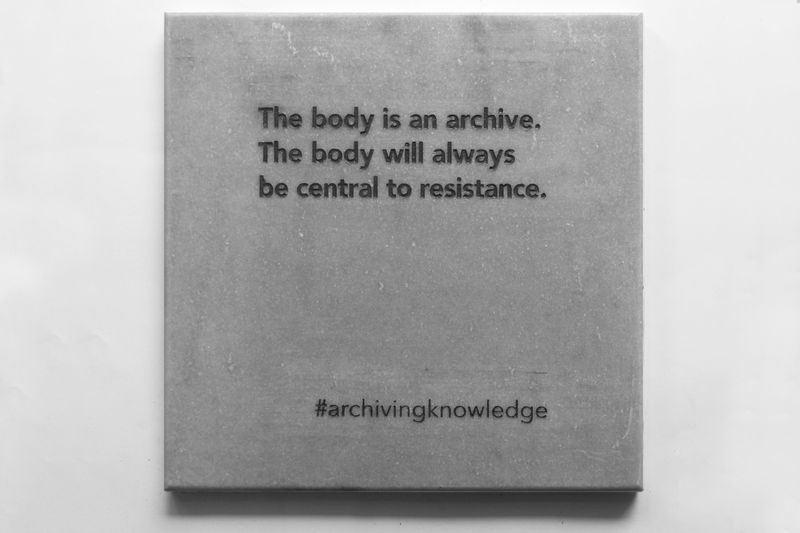
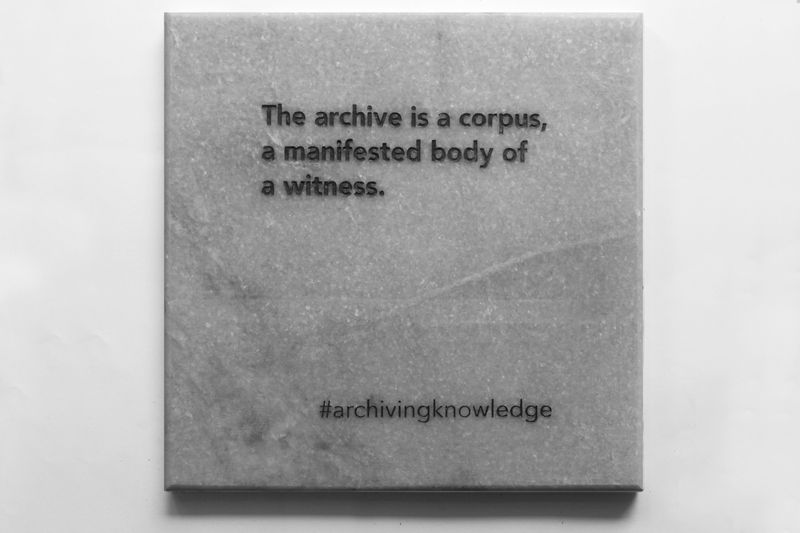
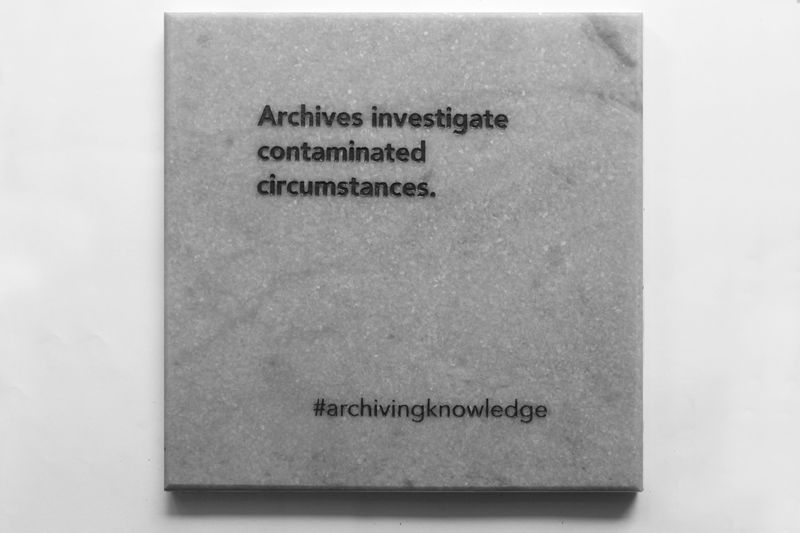
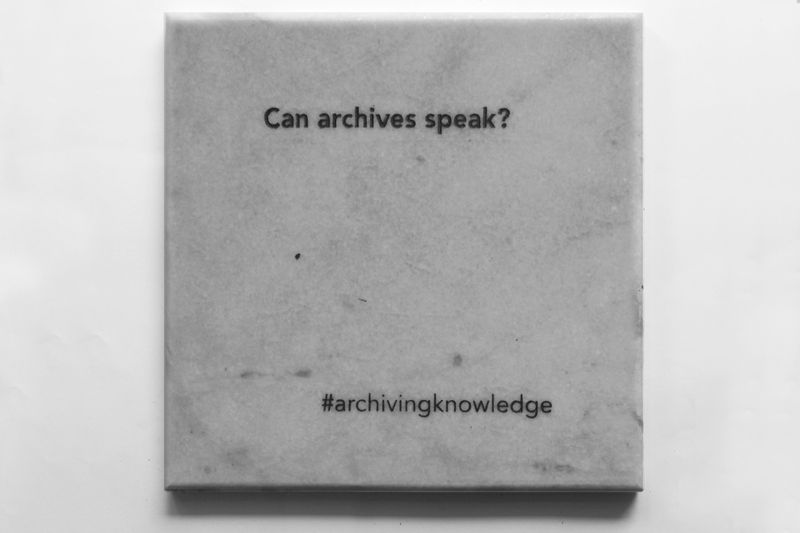
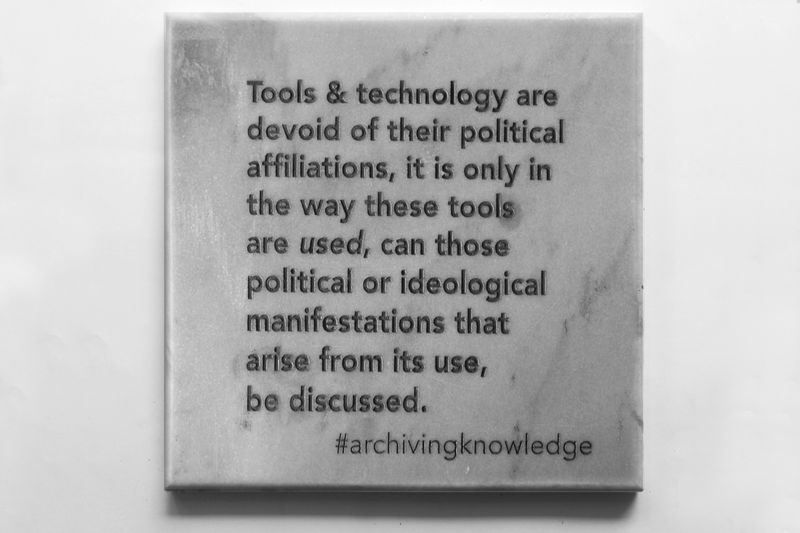
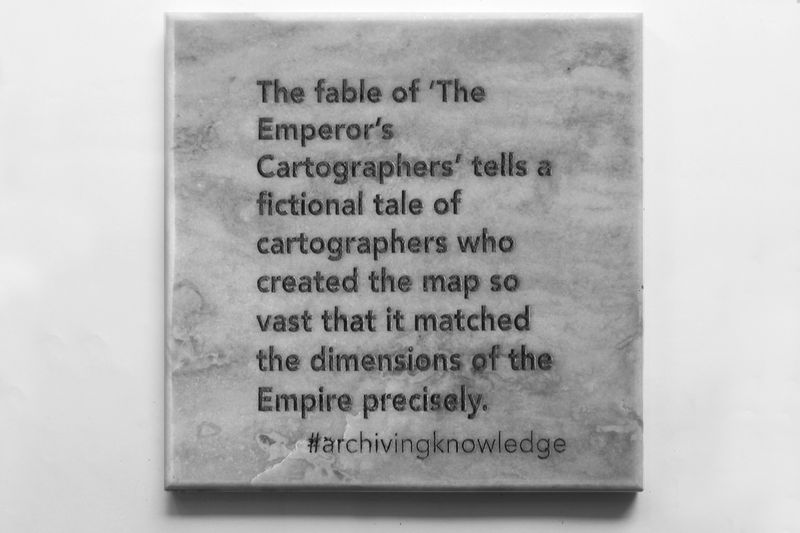
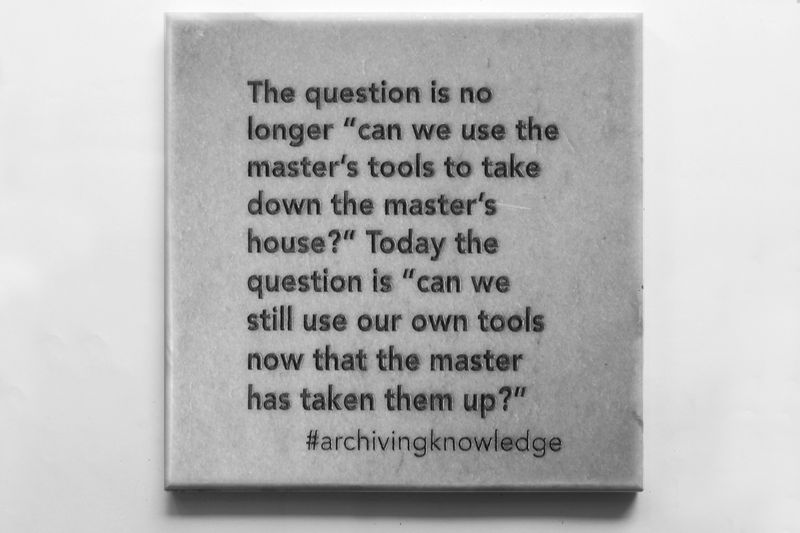
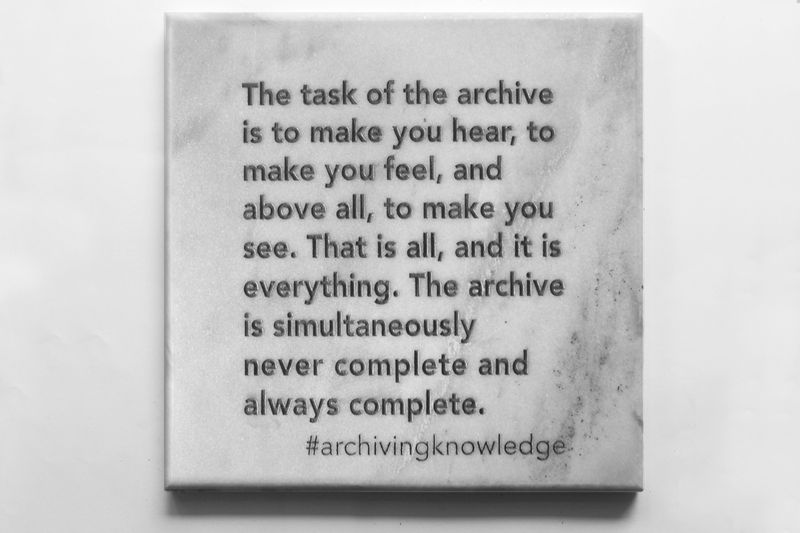
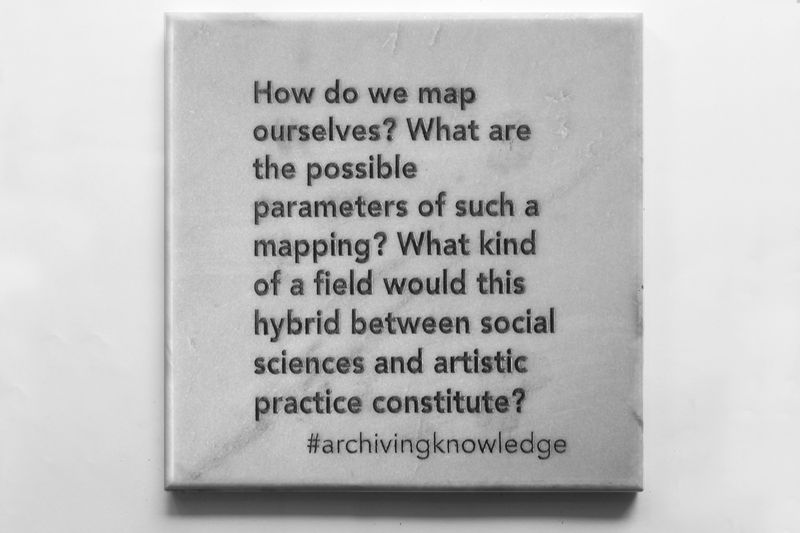
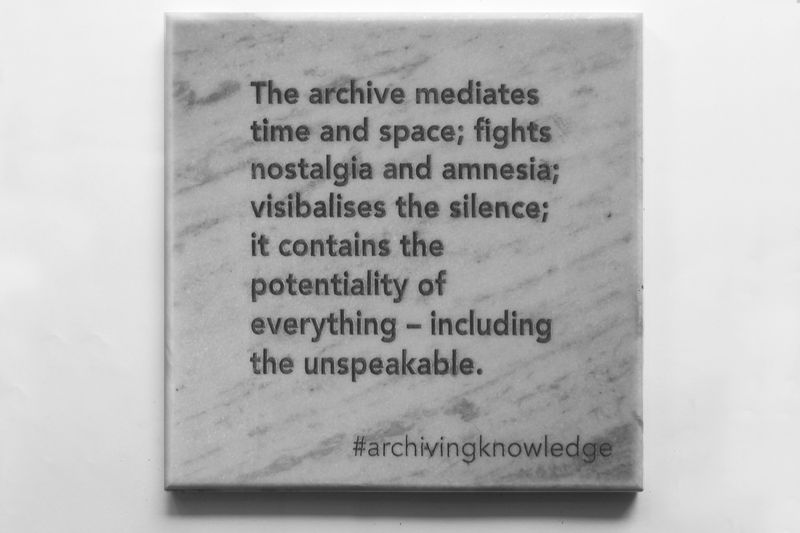
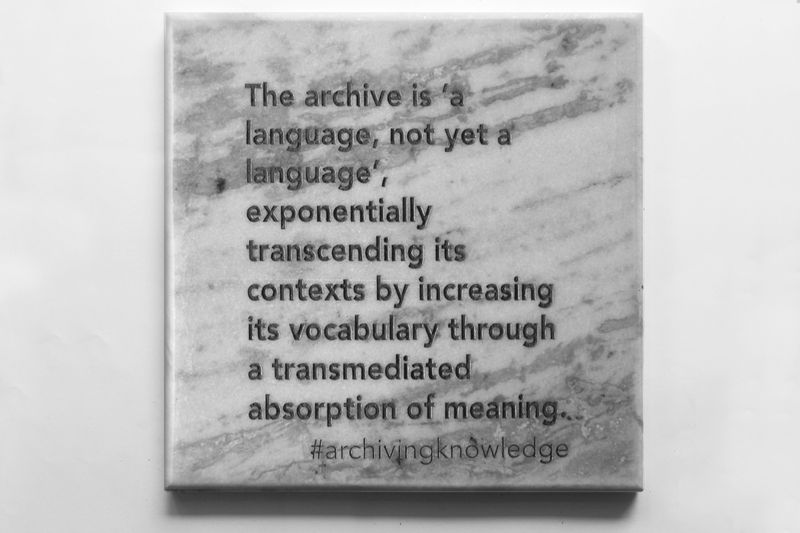
Cyborg Archives: GarbageInGarbageOut, TIFA Working Studios, Pune
Performance directed by Ali Akbar Mehta, and performed by Luv Mehtani
GarbageinGarbageOut is the fourth in a series of five performance and participatory installations, as part of the culmination of my residency at TIFA Working Studios.
Members of the audience were invited to participate ‘in the archive’ by interacting with the simplified manifestation of a cyber] archive through a series of controlled statements and requests. ‘The archive’, in this case performed by Luv Mehtani, was bound by a scripted introductory and closing statements, and with instructions to invite questions/statements from the audience.
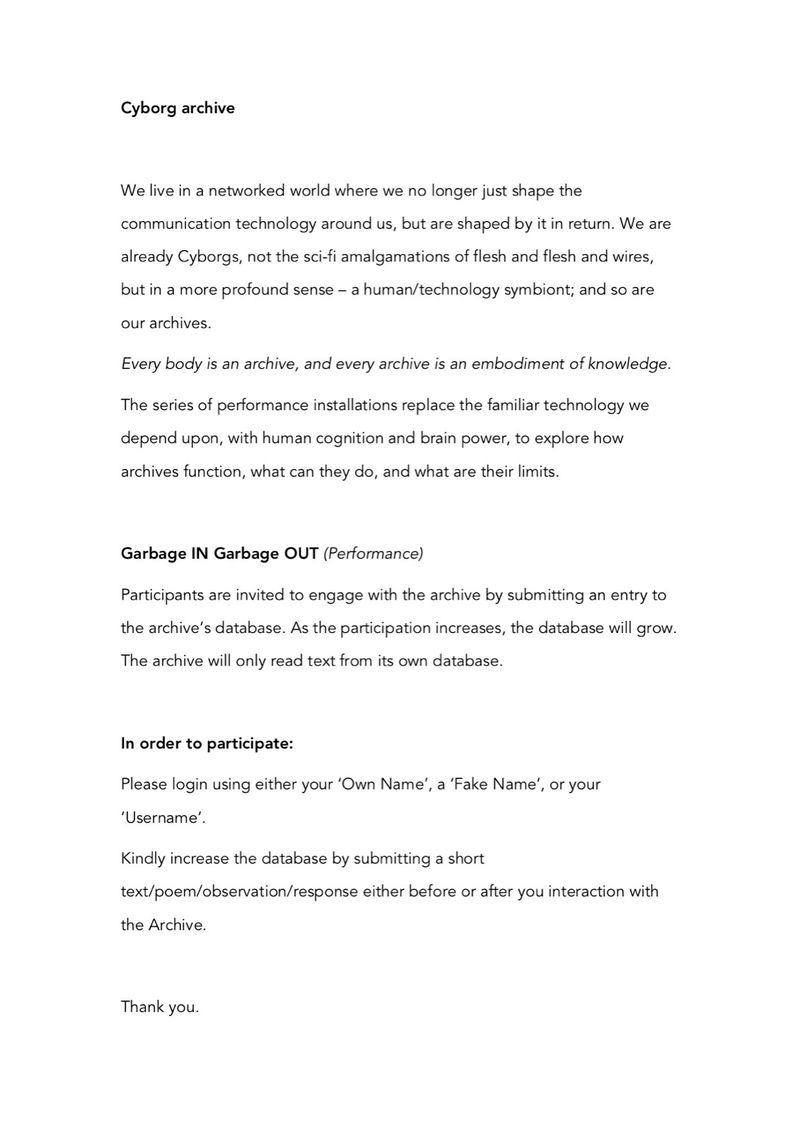
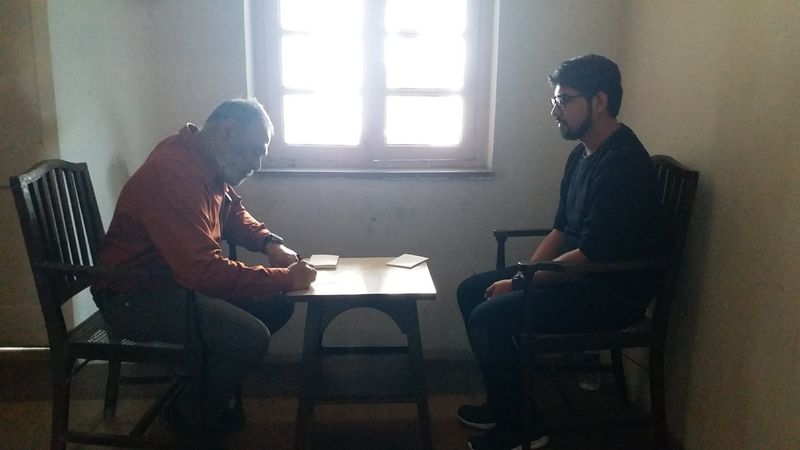
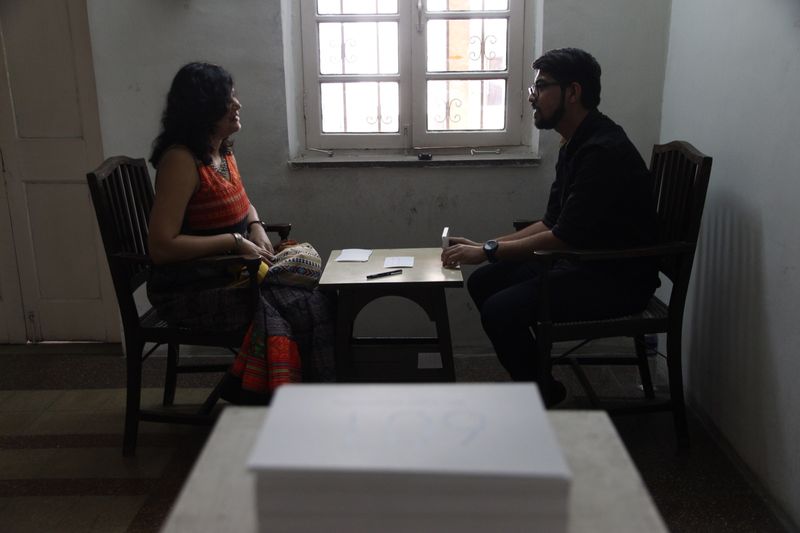
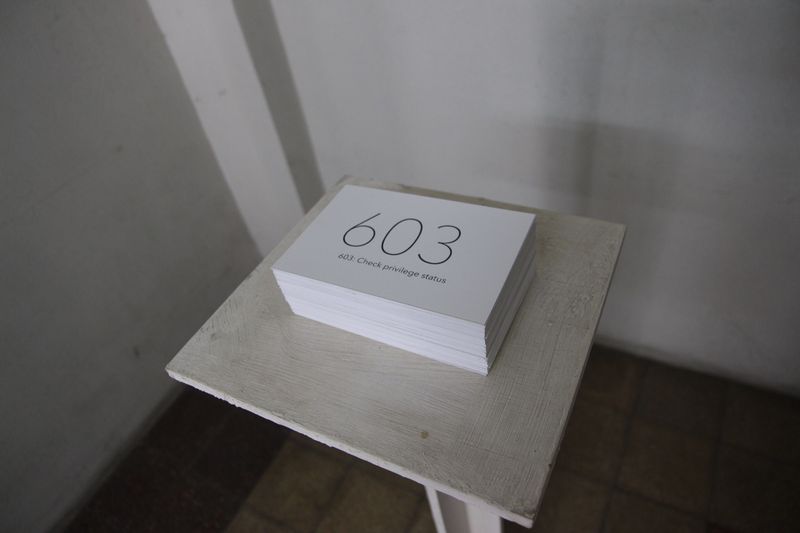
GarbageinGarbageOut is performed by Luv Mehtani, and the performance was conducted at TIFA Working Studios in the exhibition ‘Assembly of Access’, curated by Vidisha Fadescha, 2018.
Cyber Archive: Archiving as a sustainable counter-hegemonic practice
Hakara Journal, (ed.) Ashutosh Poddar and Noopur Desai, 2018
Artistic practices have forced a change in how archives may be looked against the grain, used and even produced. Counter Archives, or specifically archives as artistic practice have often sought to disrupt the power matrix of the archival canon, often employing the same strategies and tools of the institutional archive, to counter it. For me, archiving is conceptually integrated into praxis – whether towards an artistic research or declared as a work by itself, an active process. It is not a passive matrix through which content passes but a body of work that shapes the entailed content. The archives that I’m interested in are not ‘art’ per se, but that archives are primarily in service to knowledge – its production, its transmission, and its retention for future use.
Read the Full text here
Archiving: Histories in the Present
Guest Lecture, Visual Cultures, Curating and Contemporary Art (ViCCA), Aalto University, Helsinki
In 2018, I was invited by Visual Cultures, Curating, and Contemporary Art, Aalto University, Helsinki, as a Guest Lecturer, to talk about ‘Cyber Archives’, in the context of Archiving as a method to create ‘Histories in the Present’.
The lecture was a introduction to Archives, and archival praxis within Contemporary Art. It was followed by a workshop styled course, and the culmination of this course can be found here.
Congratulations, the Space is invaded: Now What?
part of Space Invaders VI, curated by Anna Jensen and Elisa Suvanto, Helsinki
“Congratulations, the Space is invaded: Now What?”, at SPACE INVADERS VI - 'Living Together’, Helsinki, 2018
By looking at the repeated gestures of Space Invasion and subsequent post-revolution spaces, we understand that the main difficulty in post-revolution spaces is maintaining the changed status quo, and to not revert back into sedimented hegemonies of power.
If Invading Space as an artistic practice may be thought to resonate with anarchist thinking, ie. a reclaiming of space from sedimented and stratified practices of capital based allocations of space, then we have to ask or think together, ‘How, may archives help us to not have to start from zero, when Invading Spaces? What to do after Invading Space? How can we take space to make space?’
To see recording of the performance lecture, click here
To learn more about Space Invaders, click here
Cyber Archives
Die Schule der Archaeutopie in conversation with Ali Akbar Mehta, Universität für angewandte Kunst Wien, Vienna, 2018
The ‘School of Archeutopia’ in a talk with Ali Akbar Mehta on ‘Cyber Archives’ - their roles and responsibilities as collective memory, as ‘the embodiment of the witness’, and as a ‘location of culture’.
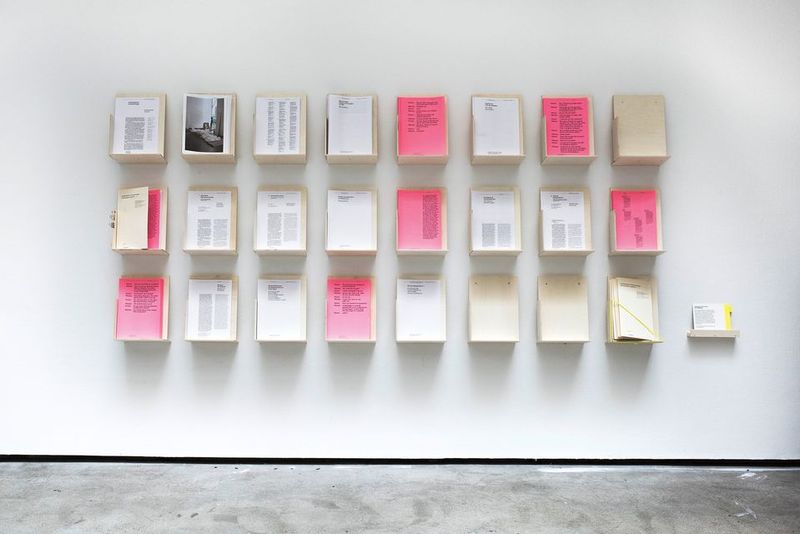
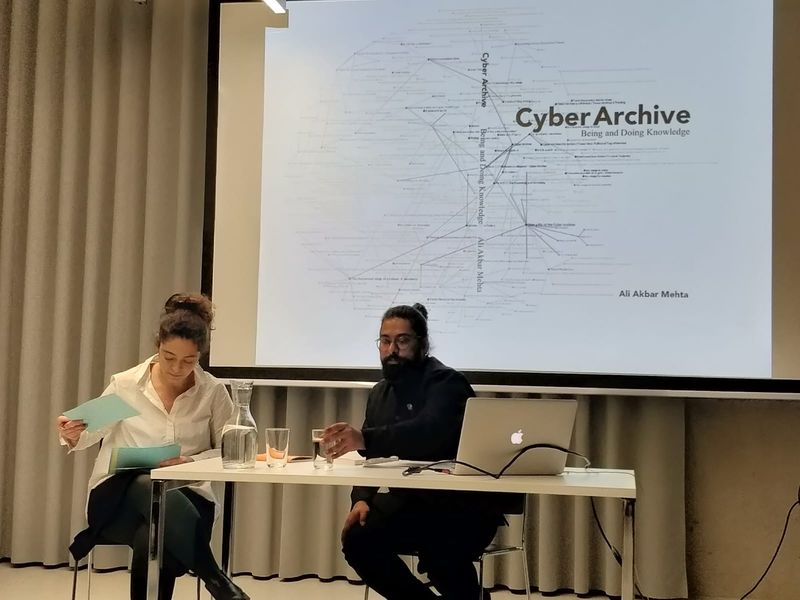
Ali Akbar Mehta deals with collective history, identity and conflict narratives in his cross-media artistic practice. In a lecture followed by a conversation, he gives an insight into his research field of the Cyber Archives.
The artist and curator lives and works in Helsinki and Mumbai. He is a founding member of the “Museum of Impossible Forms” in Helsinki. In 2018 he completed his master’s degree in Visual Culture, Curating, and Contemporary Art at Aalto University with a thesis entitled “Cyber Archive: Being and Doing Knowledge”.
The conversation will be moderated by Antonia Plessing, member of the School of Archaeutopia.
More info here
To Not Wait for the Archive: Home and Labour mired in the complications of Invisibalisation
Home Issue, Visual Culture and Contemporary Art Journal #5, (ed.) Saara Mahbouba, Paola Jallili and Else Lagerspetz, published by Aalto University, Helsinki 2019
The idea of home and labour itself has been mired in the complications of invisibilization of labour, the misdirection of value and surplus, and the recontextualization of the capitalist system as the driver of home politics. Is the home, as a site of labour – both visible and invisible – a public space? Not through physical proximity and shared-ness, but as the conceptual framework relevant to all our preoccupations? If we imagine the home as a centre – whether we conform to the idea of a home, rebel against it or are indifferent to it – the home serves as a node through which we may think about “the untagged and unnumbered zones of cultural and political possibility” opened up through an “active seeking out of engagement, exchange, and intersection through the modes of mutuality, collaboration, and emplacement, an experimental poetics of belonging”.
The home is therefore a critical commons and the question becomes how do we want to work to preserve it. This act (of preservation) becomes a tender act, essential in the way toward “learning to learn from below” as in Gayatri Chakravorty Spivak’s formulation, or, as Souleymane Bachir Diagne puts it, learning from others in order to live together. Such learning, for Adam Szymczyk, allows us, as artists, to imagine a symmetrical situation of the encounter of equals, and not an asymmetrical power relationship between the sovereign and the subaltern.
The home in its formulation as a critical commons can perhaps find resonance in the ideas of Cyber Archives as yet another kind of a critical commons, where to me both are a “transitive engagement”, based on confident encounters (of equals), on the understanding that the Self and the Other need not be locked in the simplistic binaries of either communion or antagonism, hostage to fragmentation or subjugation, but that they can instead weave together a fabric of “adjacencies and distances”, “irrespective of a shared colonial history, which is no longer the only or the most important criterion for an intersection, encounter, or exchange among dissimilar subjectivities […]” When such identities are thus unmasked, de-naturalized and dissolved, we are free to work out new forms of dialogue and interaction across difference, a new and redeeming solidarity.
__
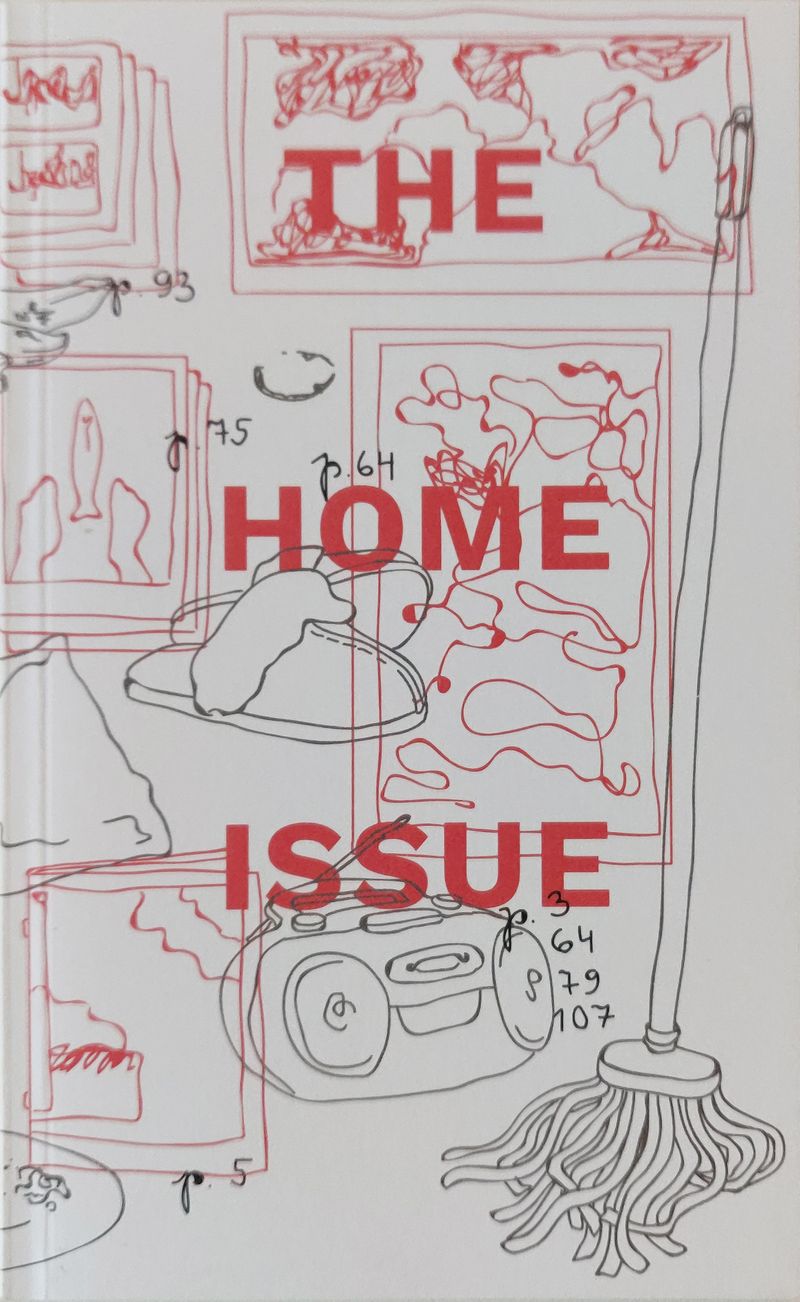
Read the complete essay in the Home Issue, Visual Culture and Contemporary Art Journal #5, (ed.) Saara Mahbouba, Paola Jallili and Else Lagerspetz, published by Aalto University, Helsinki 2019
A Cyber Archive of Questions
in 'cohabitant/mutants', Restricted Fixations, issue 01, edited by Renuka Rajiv, independant publication
A Cyber Archive of Questions is an essay published in ‘cohabitant/mutants’, Restricted Fixations, issue one – an independent zine curated and edited by Renuka Rajiv.
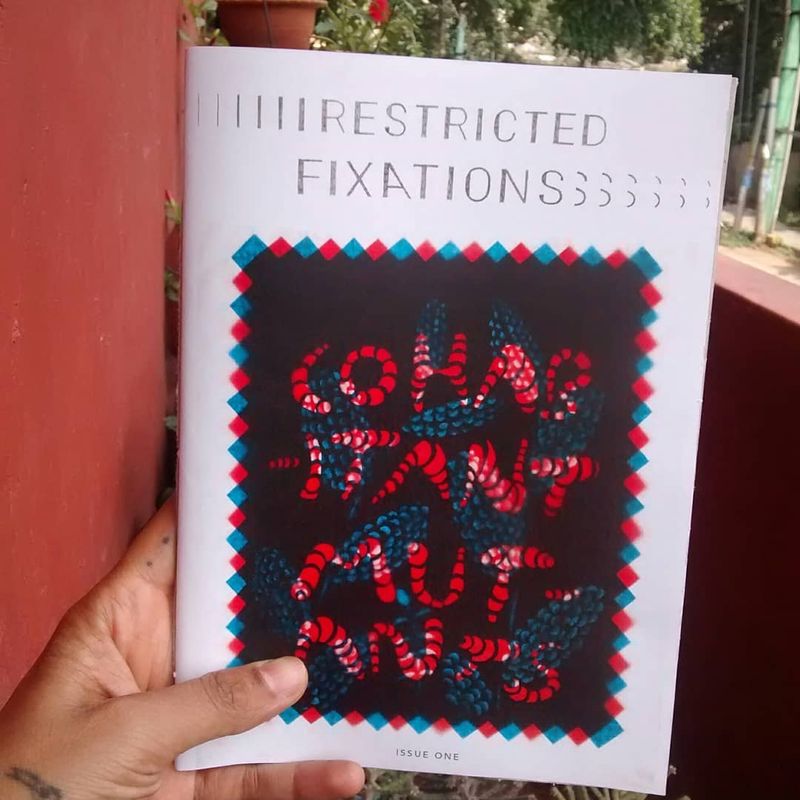
Presented as a cyberpsychogeographical archive situated in and as a cluster of cyber relations, this text performs its own validation by actualising the possibilities of non-linear and cyclic time that are the relevant ‘features’ of a metadata-driven, hyperconnected archive that resides in cyberspace and uses a digital interface. Questions sustain a critical perspective of both praxes and research, and so if an archive has no end, this archive may be an ongoing process of archiving questions until the very end (of archives).
For a copy of the zine, please contact Renuka Rajiv here
Glitchverse
Souja/Shelter Festival 2020, (online)
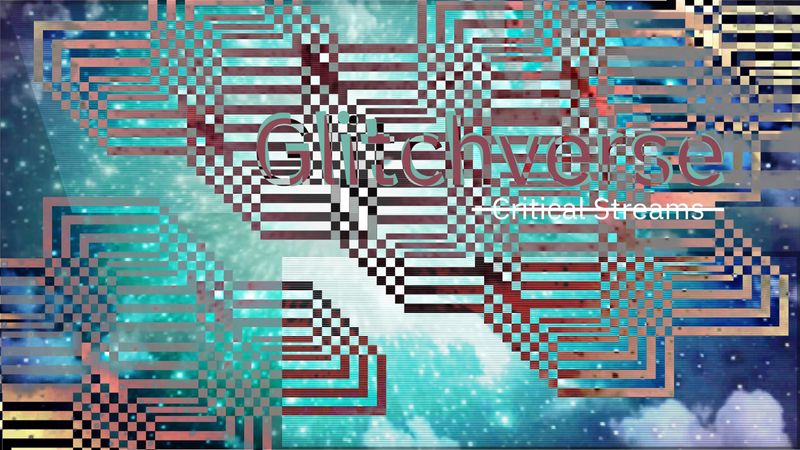
Glitchverse was performed as an online lecture-performance for [Souja/Shelter Festival 2020](http://suojashelter.tilda.ws/), on 12.07.2020
‘Glitchverse’ is a cyber-psychogeographical and otherworldly drift expanding networked bodies (cyborgs) within a networked space (cyberspace) within a networked time (cyberpunk). As a performance-lecture it mediates the reframing of terminologies that must now be adapted to work within online spaces, especially of archives operating within digital ecologies, legal regimes, technical infrastructures, neural nets, and protocols – across archival ‘deep time’, historical contexts of datafied praxis, born-digital and digitised post-materiality, trip-hop poetic narratives, data streamed world-building, academic Glitch trivia, digital philosophy, and the universe as digital data – the works.
This cyberformance overdrive will attempt to discuss several imperative questions: In a time when right-wing and populism drive the democratic consensus-based machinery, what can dissent based post-democratic practices teach us? What does unlearning mean and how can hope to have new sympathetic encounters of equals? How can we replace the Internet of Things (IoT) with an Internet of Accountability – as a decolonial praxis? What does accountability mean when we are trapped within our own filter bubbles generated by algorithmic bias and an increasing digital divide? What role may poetry have in a world-space generated by code? What are the digitized manifestations of ‘time as technology’, and what will we do with ‘time’ when we find a better technology than time, where the linearity of time is increasingly being flattened through ever-increasing access to information and its hypermediations? If the universe is a computer, and if the fundamental matter of the universe is not carbon, quarks, or genome, but information that is broken into a simple digital binary, what does it means for us as posthuman digital beings in a post-information age, and how can we employ a cybernetic model of thinking to look at the universe in an atomic fashion and to aim to decode it? In the twilight zone of science, where matter and energy now collide with the inevitability of information as material, what is reality if the entire cosmos is a simulation? What are the archival tools at our disposal in a time that can be described only as archival time?
Cyberspace is the pre-eminent terra incognita of the twenty-first century and a wide range of maps and map-like visualisations have been produced to comprehend it. Technologies of cartographic production have often been explained through narratives of scientific progress. As a consequence, the history of cartography tends to be written as a history of technique, with an underlying assumption that rational decision making leads to the adoption of improved technologies and updating institutional practices when they become available. In both applied and scholarly writing, the computerisation of cartography is conjoined inprogressive discourses of scientific advancement and increasing accuracy and depth of knowledge. This fits within with a long-running storyline of progress in cartography: art becomes science, florid designs become a formal display, the named cartographer becomes an anonymous technician, and the Word becomes the archive.
This lecture-performance will be conducted live, over a period of 40 minutes and will be accompanied by a glitch-and-found-soundscape, as well as simulated conversations between non-entities, video streams and pop-culture-bombings.
External Evaluation of Ali Akbar Mehta/ Master’s Thesis – Cyber Archive: Being and Doing Knowledge
by Ranjit Hoskote
I find myself excited by Ali Akbar Mehta’s engagement with a world of rapidly, even exponentially escalating technological, social and ecological transformation – a world that has thrown up a series of ethical, aesthetic and political challenges, while also obliging us to alter, sometimes radically, our received definitions of individual subjectivity and ambient context (the network and meshwork relationalities blur the lines between these formerly distinct entities), nature and artifice (digital, virtual, augmented and hybrid environments possess a compelling psychic and effectively material reality, especially to a digital native, that cannot simply be dismissed as unreal), body and world (nano-technologies, surveillance devices, communication tools have changed our sense of where one ends and the other begins), and so forth.
In such a world, Mehta invites us to consider the nature of the archive as a resource and point of departure for art-making as well as ethical and political action; the residual questions of hegemony and colonialism that accompany it (who builds an archive; who has access to it; who controls the annotation that accompanies the records?), and organises an inquiry into how we may conceive of the archive in its expanded, rhizomatic and hyper-connected avatars in cyberspace as a ‘cyber archive’.
In a key move, Mehta invokes the trope of philology, advancing the claim that, as we go deeper into an epoch when our lifeworlds will be highly encrypted, the cyber archive will function as a language – I find myself thinking, here, of Wittgenstein’s cryptic suggestion that a language is a form of life – by means of which to negotiate and decode such a lifeworld. As a cultural theorist and curator, I find myself enthralled by this thesis, its explorations and its implications for the human subject and artistic agency in an epoch marked by a dramatic form of inter-species mutation as we all become cyborgs, organisms constituted as much by human consciousness as by technological prostheses.
Thus, it seems to me that Mehta’s choice of topic and his articulation of his artistic and scientific goals, in this thesis, closely reflect his preoccupations and anxieties as an imaginative, art-making subject and as the citizen-navigator of a complex present (in his chosen phraseology, a ‘User’ of the mercurial cyber archive). Significantly, also, he does not simply surrender before the already vast and ever-increasing bibliography on the subject of the archive; rather, he defines his area of study in relation to the particularities of the artistic and theoretical ground he has mapped as relevant to himself and his location, which straddles an organic belonging in the global South and an equally strong connection in the global North.
Thus, as he explores the cyber archive as a location for the production of culture he cites, as his points of inspiration, thinkers who have committed themselves to mapping grounds of transformation: the Agamben of The Experiential Field, charting the connection between poetry and philosophy; the nuancing of habitus, and the relationship between locus, power, disposition and experience by Pierre Bourdieu in The Cultural Field; and the transcultural potentialities of The Nth Field as theorised by Nancy Adajania.
Not only does Mehta demonstrate a command of the sources, materials and debates around his subject, but he also amplifies the horizon of reference to include thinkers and artists based in, or speaking from, the global South – thus refreshing the now considerable archive, if you will, of academic and artistic treatments of the archive. His approach is encyclopaedic – and his inquiry, compelling as it is, takes on the daunting challenge of bringing together a variety of themes (including, for instance, the archive, the commons, the politics of togetherness, translation as a mode of overcoming mutual atomisation and alienation, the emancipatory hope of pedagogy in a “knowledge society without knowledge” or with fragmented knowledges, and the formation of communities that perform and re-tool knowledge, as platforms of resistance to the large-scale flattening of experience and expression) while also crafting conceptual tools on the go, as it were, offering analysis, manifesto, and lexicon in succession.
At some point in this endeavour, the thesis unfolds as a constellation – and I begin to wonder whether it might not have assumed the form of an exhibition, or a performance, or a cyber-concert, or a hybrid conference. And then I stop myself and think that, perhaps, this is the intent of Mehta’s thesis – to compress an expansive and existentially urgent inquiry into the format of an academic investigation, while simultaneously pushing up against and beyond the constraints of such a format. The doing of this thesis emerges as an artistic strategy; and yet, it carried forward the impulse of scientific curiosity and a will-to-systematisation.
[Bombay: 8 June 2018]
Bibliography and other Reading
Reading For Cyber Archive: Being and Doing Knowledge
Mbembe, Achille, The Power of the Archive and its Limits, Refiguring the Archive (Ed.) Carolyn Hamilton, Verne Harris, Jane Taylor, Michele Pickover, Graeme Reid & Razia Saleh, (David Philip Publishers, an imprint of New Africa Books, Cape Town, South Africa, 2002)
Smith, Adam, The Wealth of Nations, book 3, (Modern Library, 1994)
Warde, Alan, Consumption: A Sociological Analysis, (Palgrave Macmillan: UK, 2017)
Galloway, Alexander R., The Cybernetic Hypothesis, (Duke University Press, 2014)
Tocqueville, Alexis de, Democracy in America, volume 2, (ed.) Bruce Frohnen, (trans.) Henry Reeve, (Regnery Publishing,2002)
Sekula, Allan, Reading an Archive: Photography between Labor and Capital, The Photography Reader, (ed.) Liz Wells (Routledge: New York, 2002)
Toffler, Alvin, Future Shock, (Pan Books: London, 1970)
Raymond, Andrew and O’Toole, James M., Up from the Basement: Archives, History, and Public Administration, Georgia Archive, Volume 6, p.28
Clark, Andy, Natural Born Cyborgs?, Science at the Edge, (Union Square press, New York, 2008)
Gnolio, Antonio, Philosophy As Interdisciplinary Intensity – An Interview With Giorgio Agamben, (trans.) Ido Govrin, La Repubblica, 2016
Zelitzer, Barbie, Finding Aids to the Past: Bearing Personal Witness to Traumatic Public Events, Media, Culture, and Society, 24(5), 2002
Brecht, Bertould, This Babylonian Confusion, DAH Theater, 1992
Braden, Bob, In Memory of Jon Postel, Internet Society ed. (1998)
Groys, Boris, Religion in the Age of Digital Reproduction, eflux Journal, Journal #04, 2009
CAMP, 10 Thesis on the Archive, Pad.Ma, 2010
CAMP, CCTV Footage from Lower Parel, Pad.Ma
Sagan, Carl, The Pale Blue Dot, (Ballantine Books, 1994)
Mouffe, Chantal, Which Public Space for Critical Artistic Practices?, Cork Caucus, (Instititute of Choreography and Dance (Firkin Crane), 2005)
Bishop, Claire, The Digital Divide Contemporary Art And New Media, Mass Effect, (ed.) Lauren Cornell, and Ed Halter, (MIT Press, ProQuest Ebook Central, 2015)
Bearman, David, An Indefensible Bastion: Archives as a Repository in the Electronic Age, Archival Management of Electronic Records, (ed.) David Bearman, (Archives and Museum Informatics Technical Report, no.13, Pittsburgh, 1991)
Bearman, David, Multisensory Data and Its Management, Management of Recorded Information: Converg¬ing Disciplines, (ed.) Cynthia Durance, (München, 1990)
Lupton, Deborah, Digital Bodies, (Routledge Handbook of Physical Culture Studies, Routledge, 2017)
Sevova, Dimitrina in collaboration with Roth, Alan, The Artist as The Curator as The Artist (The Art of Curating or How about a Paracuratorial Turn?), (Corner College, 2016)
McCoy, Donald R., The National Archives: America’s Ministry of Documents 1934–1968, Chapel Hill, (University of North Carolina Press, 1978)
Haraway, Donna, Simians, Cyborgs & Women: The Reinvention of Nature, (Routledge: New York, 1991)
Ambedkar, Dr. B. R., Annihilaton of Caste: The Annotated Critical Edition, (Navayana Publishing, 2014)
Ambedkar, Dr. B.R., Babasaheb Ambedkar: Writings and Speeches, Volume 5, Education Department Government of Maharashtra, 1990
Haskell, Edward, (Ed.), Generalization of the structure of Mendeleev’s periodic table, Full Circle: The Moral Force of Unified Science, (Gordon and Breach, New York, 1972)
Parsner, Eli, The Filter Bubble, (Penguin Press: New York, 2011)
Aarseth, Espen J., Cybertext, (John Hopkins University Press, 1997)
Ham, F. Gerald, The Archival Edge, American Archivist 38 (January 1975)
Saussure, Ferdinand de, Course in General Linguistics, (ed.) by Charles Bally and Albert Sechehaye In collaboration with Albert Reidlinger, (trans.) Wade Baskin, (Philosophical Library: New York, 1959)
Cramer, Florian, what is Post Digital?, PostDigital Aesthetics: Art, Computation and Design, (ed.) David M. Berry and Micheal Dieter, (Palgrave Macmillan, 2015)
Lovink, Geert, Hermes on the Hudson: Notes on Media Theory after Snowden, eflux Journal#54, online link,
Kapoor, Geeta, Secular Artist, Citizen Artist, Art and Social Change, (ed.) Will Bradley and Charles Esche, (Tate Publishing in association with Afterall, 2007)
Sharp, Gene, From Dictatorship to Democracy, Albert Einstein Institute, 1994
Legrady, George, Personal communication, 16 September, 1998, – cited in Lev Manovich, The Language of New Media, (MIT Press: Cambridge, Massachusets, 2001)
Agamben, Giorgio, Speech and Knowledge, Graduate Faculty Philosophy Journal, Volume 31, Number 1, 2010
Giorgio, Stanzas: Word and Phantasm in Western Culture, (University of Minnesota Press: Minneapolis, 1993)
Agamben, Giorgio, The Omnibus: Homo Sacer, (Stanford University Press: California, 2017)
Trębicki, Grzegorz, Human Identity in the World of Altered Carbon, 2018
Foster, Hal, An Archival Impulse, October Vol. 110 (MIT Press, 2004)
Arendt, Hannah, The Public Realm: The Common, The Human Condition, (University of Chicago Press, 1958)
Bajohr, Hannes, Experimental Writing in its Moment of Digital Technization, publishing as Artistic Practice, (ed.) Annette Gilbert, (Sternberg Press, 2016)
Gadamer, Hans-Georg, Truth and Method, Second Revised Edition, Translation revised by Joel Weinsheimer and Donald G. Marshall, (Continuum Books, 2004)
Samuels, Helen, “Improving Our Disposition: Documentation Strategy,” Archivaria 33, 1991–92
Jenkins, Henry, Transmedia storytelling, 2007, web publication
https://en.wikipedia.org/wiki/Transmedia_storytelling
Jenkins, Henry, Convergence Culture, (New York University Press: New York and London, 2006)
Steryl, Hito, A Sea of Data: Apophenia and Pattern (Mis-)Recognition , efflux journal#72, April 2016
Bhabha, Homi K., Commitment to Theory, Location of Culture, (Routledge: London and New York, 1994)
Bhabha,Homi K., Border Lives: The Art of the Present, Locations of Culture, (Routledge: London and New York, 1994)
Bhabha,Homi K., The Third Space, Interview with Homi Bhabha, Jonathan Rutherford, Identity: Community, Culture, Difference, (Lawrence and Wishart, London, 1990)
Bhabha, Homi K., The Location of Culture, (Routledge: London/New York, 1994)
Rogoff, Irit, Free, eflux Journal #14, 2010
Derrida, Jacques, Archive Fever: A Freudian Impression. Trans. Eric Prenowitz (The University of Chicago Press: Chicago and London, 1995)
Ranciére, Jacques, Disagreement. Politics and Philosophy [1995], (trans.) Julie Rose, (University of Minnesota Press: Minneapolis, London, 1999)
Baldwin, James, The Witness, I am not Your Negro, (Penguin Modern Classics, 2017)
Purdy, James P., Three Gifts of Digital Archives, Journal of Literacy and Technology, Volume 12, Number 3: November 2011
Hong, James T., The Suspicious Archive: A Prejudiced Interpretation of the Interpretation of Archives, Part I, e-flux journal #75, September 2016,
Darling, Jesse, Arcades, Mall Rats, and Tumbler Thugs, Mass Effect, (ed.) Lauren Cornell, and Ed Halter, (MIT Press, 2015)
Darling, Jesse, Post-Whatever #usermilita, online publication, https://rhizome.org/editorial/2014/dec/16/post-whatever-ethics-historicity-usermilitia/
Reitz, Joan M., ODLIS – Online Dictionary for Library and Information Science, Libraries Unlimited, 2010
Berger, John, And Our Faces, My Heart, Brief as Photos, (Bloomsbury Press, 2009)
Berger,John Berger, Concerning Identity, Palestine, Series 3 No.9, Edited by David Constantine, Helen Constantine
Berger,John, Confabulations, (Penguin Books, 2016)
Berger,John, Fellow Prisoners
Berger,John, Fields, About Looking, (Bloomsbury, 2009)
Berger,John, On Tenderness
Dewey, John, Democracy and Education, (The Macmillan Company: New York, 1916)
Kennedy, John F., Remarks on the first anniversary of the Alliance for Progress, 13 March, 1962
Butler, Judith, Notes Toward a Performative Theory of Assembly, (Harvard University Press, 2015)
Goldsmith, Kenneth, If it Doesn’t Exist on the Internet, it Doesn’t Exist, September 2005
Coles, Laura, Getting Started: Your Archival Organisation, Manual for Small Archives, Archives Association of British Columbia, Vancouver, 1999
Lessig, Lawrence, Code version 2.0, (Basic Books: New York, 2006)
Manovich, Lev, The Language of New Media, (MIT Press: Cambridge, Massachusetts, 2001)
Bellardo, Lewis J. and Bellardo, Lynn Lady, A Glossary for Archivists, Manuscript Curators and Records Managers, (Society of American Archivists, 1992)
Osten, Marion von & Egermann, Eva, Twist and shout: On Free Universities, Educational Reforms and Twists and Turns Inside and Outside the Art World, De Appel Arts Center, 2010
Amerika, Mark, Meta/Data A Digital Poetics, (MIT Press, Cambridge, 2007)
McLuhan, Marshall, Medium is the Message, Understanding Media: The Extensions of Man, (ed.) Terrence Gordon, (McGraw-Hill Education, 1964)
Norcia, Megan A., Out of the Ivory Tower Endlessly Rocking: Collaborating across Disciplines and Professions to Promote Student Learning in the Digital Archive, Pedagogy, Volume 8, Issue 1, Duke University Press, 2008
Alexenberg, Melvin L., The Future of Art in a Post-digital Age: From Hellenistic to Hebraic Consciousness, 2nd Ed. (Chicago Intellect, 2011)
Foucault, Michel, The Historical a Priori and The Archive, Archeology of Knowledge, (Pantheon Books: New York, 1972)
Foucault, Michel, Two Lectures, in Power/Knowledge: Selected Interviews and Other Writings, 1972–1977, (ed.) Colin Gordon, (trans.) Colin Gordon, Leo Marshall, John Mepham, and Kate Soper (London: Harvester 1980)
Adajania, Nancy, ‘Global’ Art: Institutional Anxiety and the Politics of Naming, Salzburg International Summer Academy of Fine Arts, 2011
Chomsky, Noam, Failed State, (Metropolitan Books, 2006)
Sternfeld, Nora, Challenging the Legitimacy of Museological Knowledge, The Subjective Object, Liepzig Academy of the Visual Arts, (K. Verlag Press, 2012)
Sternfeld, Nora, Learning Unlearning, CuMMA Papers#20
Enwezor, Okwui, Archive Fever: Photography between History and the Monument, [2007], (Copublished by the International Center of Photography, New York, and Steidl Publishers, Göttingen, Germany, 2008)
Marchart, Oliver, Temporarily Useful Zones. On the production and transmission of knowledge in the art field, in Henk Slager (Hg.): Temporary Autonomous Research, Amsterdam Pavilion der 9. Shanghai Biennale 2012, (Utrecht: Metropolis Books 2012)
Marchart, Oliver, The Curatorial Function – Organising the Ex/position, Curating Critique, ICE Reader 1, 2007
Sainath, P., The Public Archives of Rural India
Basu, Paul and Jong, Ferdinand De, Utopian archives, decolonial affordances, Introduction to special issue, Social Anthropology/ Anthropologie Sociale, (European Association of Social Anthropologists, 2016)
Ricoeur, Paul, Archives, Documents, Traces, The Archives: Documents of Contemporary Art, (ed.) Charles Merewether, (Whitechapel and MIT Press: London, 2006)
Bourdieu, Pierre, Outline of a Theory of Practice, (trans.) Richard Nice, (Cambridge University Press, 1977)
Plato, Phaedrus, (from Plato in Twelve Volumes), Vol. 9, translated by Harold N. Fowler. Cambridge, MA, Harvard University Press; London, William Heinemann Ltd. 1925, online link, http://www.perseus.tufts.edu
Tarantino, Quention, Kill Bill 2, Miramax Films, 2004
Hoskote, Ranjit, Crossing Borders and Other Acts of Identity Formulations: Reshaping the agency of struggle, interview by Ali Akbar Mehta and Vidha Saumya, CuMMA Papers#25
RAQS Media Collective, With the Nose of a Detective and the Eyes of a Poet, The Subjective Object, Liepzig Academy of the Visual Arts, (K. Verlag Press, 2012)
Pearce–Moses, Richard, A Glossary of Archival and Records Terminology, (Society of American Archivists, 2005)
Heinlein, Robert A., Stranger in a Strange Land, 1961.
Ascott, Roy, Telematic Embrace: Visionary Theories of Art, Technology, and Consciousness, (ed.) Edward A. Shanken, (University of California Press: Berkeley, 2003)
Esmail, Sam, Mr. Robot, USA Network, 2015 – (ongoing)
Huntington, Samuel P., Introduction: Flags and Other Cultural Identity, Clash of Civilizations and the Remaking of World Order, (Simon and Shuster: New York, 1996)
Coleridge, Samuel Taylor, Biographia literaria or biographical sketches of my literary life and opinions, 1817
Maharaj, Sarat, Know-how and No-How: stopgap notes on “method” in visual art as knowledge production, ART & RESEARCH: Journal of Ideas, Contexts and Methods, Volume 2, no. 2, 2009
Jenkinson, Sir Hilary, A Manual of Archive Administration, (Percy, Lund, Humphreys & Co., 1922)
Jenkinson, Sir Hilary, Modern Archives: Some Reflections on T. R. Schellenberg: Modern Archives: Principles and Techniques, (Journal of the Society of Archivists 1, 1957)
Žižek, Slavoy, The Superego and the Act: A lecture by Slavoj Zizek, 2009
Sonvilla-Weiss, Stefan, (In)visible: Learning to act in the Metaverse, (Springer: Wien New York, 2018)
Hawking, Stephen & Mlodinow, Leonard, The Grand Design, Bantam Books, 2010
Foster, Susan Leigh, Dance Theory?, Teaching Dance Studies, (ed.) Judith Chazin-Benneahum, (London: Taylor and Francis, 2005),
Spieker, Sven, The Big Archive: Art from Bureaucracy, (MIT Press: Cambridge, 2008)
Cook, Terry, What is past is Prologue: History of Archival Ideas since 1898, and the Future Padaigm Shift, Archivaria, the journal of the Association of Canadian Archivists, 43, Spring 97
Eastwood, Terry, Towards a Social Theory of Appraisal, The Archival Imagination: Essays in Honour of Hugh A. Taylor, (ed.) Barbara L. Craig, (Ottawa, 1992)
Smith, Jane F., Theodore R. Schellenberg: Americanizer and Popularizer, American Archivist 44, 1981
Schellenberg, Theodore R., European Archival Practices in Arranging Records, published as National Archives Staff Information Circular no. 5 in July 1939
Schellenberg, Theodore R., Modern Archives, Society of American Archivists, 1996
Tiqqun, The Cybernetic Hypothesis, (Tiqqin 2, 2001)
Meyer, Toresten, On the Database Principle – Knowledge and Delusion, Mashup Cultures (ed.) Stefan Sonvilla-Weiss, (Springer: Wien New York, 2017)
Benjamin Walter, Author as Producer, (trans.) John Heckeman, (New Left Review 1/62, 1970)
Ong, Walter, Orality and Literacy: The Technologizing of the World, (Routledge: London and New York, 1982)
Digital Panopticon, The Growth of Record Keeping about Convicts
Other referances
Economic & Political Weekly, India
Farmer’s revolution, India:
77sqm_926min, Forensic Architecture
The Agency of Unrealised Projects, Hans Ulchrist Obrist
International Council of Archives
International Council of Archives
Not in my name, India
Not in my name, UK
The Agency of Unrealised Projects, Hans Ulchrist Obrist
The Society of the friends of Halit
…
Further Reading
A Manual for Small Archives
Archives Bill 1983.(Australia)
Draft-Federal Archives law (Federal Republic of Germany);
Institutional Guides for Archives, Canadian Council of Archives
International Council of Archives, https://www.ica.org
NARA Technical guidelines_1998
NARA Technical guidelines_2004
Ordinance 1964: 504 concerning the use of writing material for state business (Sweden);
Presidential Records Act of 1978, United States, 44 USC, chapter 22;
Public Record Law 1972 (Cyprus)
Rhode Island (US) Archives and Records Management Act (draft);
Royal decree on records management 1980 (Netherlands);
Anton Vidokle, Art Without Artists?, eflux Journal #16, May 2010
Boris Groys, Art Workers: Between Utopia and the Archive, eflux Journal #45, May 2013.
Pierre Bourdieu
- Bourdieu, Distinction - A Social Critique of the Judgement of Taste
- Bourdieu, An Invitation to Reflexive Sociology
- Bourdieu, Field of Power Literary Field and Habitus
- Bourdieu, Genesis and Structure of the Religious Field
- Bourdieu, Political Interventions - Social Science and Political Action
- Bourdieu, Practical Reason - On the Theory of Action
- Bourdieu, Science of Science and Reflexivity
- Bourdieu, Social Space and Symbolic Power
- Bourdieu, The Essence of Neoliberalism
- Bourdieu, The Field of Cultural Production - Part I
- Bourdieu, The Logic of Practice
- Bourdieu, The Rules of Art - Genesis and Structure of the Literary Field
Claire Bishop, Sweeping, Dumb and Aggressively Ignorant! Revisiting Digital Divide, MIT Press, 2015
Claire Bishop, Zones of Indistinguishibility: Collective Actions Group and Participatory Art, eflux Journal#29, November 2011
Donna Harroway, A Cyborg Manifesto, Cultural studies Reader, Routledge, 1993
Douglas Kellner, Intellectuals and New Technologies, Media, Culture & Society, volume 17(SAGE: London, 1995),
Gayatry Spivak, Can the Subaltern Speak, (Basingstok: Macmillan, 1988)
Henry Jenkins, Game Design As Narrative Architecture, First Person: New Media as Story, Performance, and Game. (eds.) Noah Wardrip-Fruin and Pat Harrigan. Cambridge: MIT Press, 2004.
Hui Kyong Chun, The Enduring Ephemeral, or The Future is a Memory, Critical Inquiry 35 (Autumn 2008), The University of Chicago, 2008
Italo Calvino, Six Memos for the Next Millenium, (trans.) Patrick Creagh, Vintage Books, Penguin Random House LLC, NewYork, 1993.
Judy Wajcman, From Women and Technology to Gendered Technoscience, (Routledge, 2007)
Karl Marx, Critique of Hegel’s Philosophy of Right, 1843
Lisa Nakamura and Peter A. Chow-White, Introduction - Race and Digital Technology Code, the Color Line, and the Information Society, Routledge, 2012,
Nicolas Bourriaud, Postproduction: Culture as Screenplay: How Art Reprograms the World, (trans.) Jeanine Herman (Lukas & Sternberg: New York, 2002).
R. Lehane, Building Integrated Digital Archives, State Records, NSW,
Raqs Media Collective, In The Theatre of Memory: The Work of Contemporary Art in the Photographic Archive, Lalit Kala Contemporary #52 (Journal), Photography as Art and Practice in India, 2012
Rebecca Comay (ed), Lost in the Archives, (Alphabet City Media, Toronto, 2002)
Sammie L. Morris , Starting from Scratch: How to Create a Museum Archives, (Purdue University, 2006)
Stuart Hall, Encoding Decoding, Cultural studies Reader, (Routledge, 1993)
Trevor Smith, Archives and the Everyday, Canberra Contemporary Art Space, 1997.